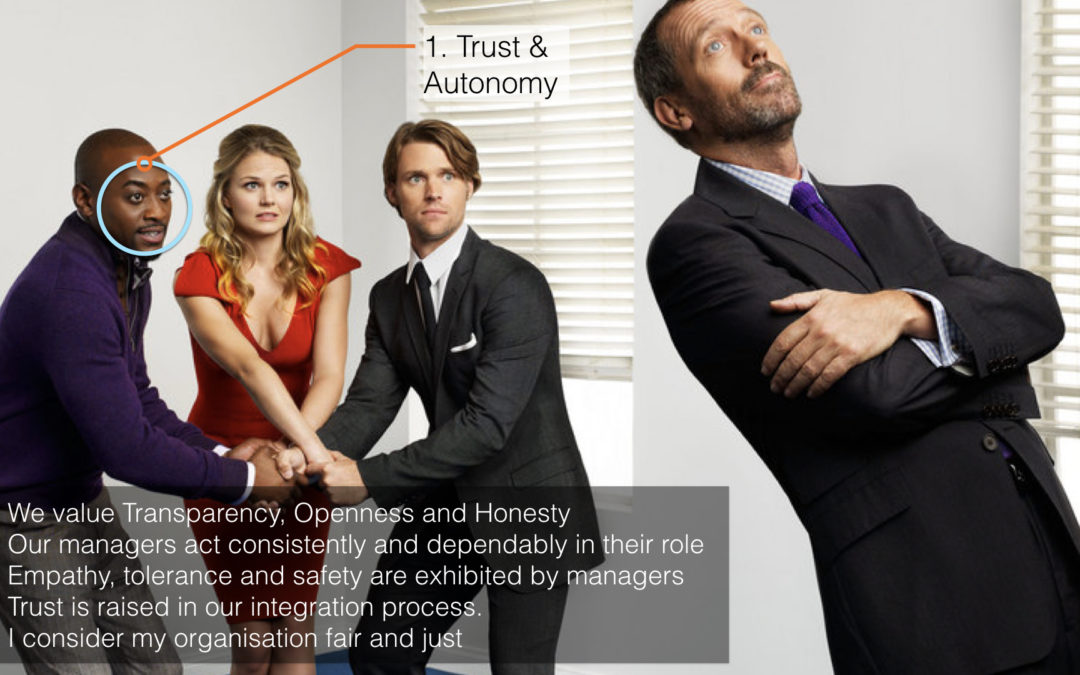Here are a few innovative practices, ranked in order of importance according to French companies (trust, commitment, wellbeing, agility, collaboration and creativity). This article has been published in a more complete version on Linkedin.
Trust & Autonomy
“The superior man acts before he speaks, and afterwards speaks according to his actions.” – Confucius
“We weren’t told everything”, “He didn’t keep his promise”, “It looks like there’s going to be a merger”, “Our competitor has made 20% of its workforce redundant, will we be next?”…..Unfulfilled promises, uncertain futures, abstruse changes, unclear information, fear of being judged….over recent years all these factors have created a surge of mistrust within companies.
(Re)building trust within a company setting involves restoring and respecting some key criteria, for example, commitments, management credibility, reliability & transparency of information, consistency between sentiments and acts / encouragement and the expression of dissatisfaction or doubts.
It simply boils down to trusting one another and trusting other people. On paper, it is something that everyone aspires to. But how do we get there?
Three examples of management innovation that can help restore trust
- Every six weeks, Thierry Gaillard, CEO of the French Mars chocolate company, organises a 30 minute meeting called “Ca se discute” (“Let’s talk about it”), during which he is available to answer staff questions. This practice is all the more interesting when we consider that employees tend to have even less confidence in their Directors than they do in their direct managers.
- At HCL Technologies, in India, employees can express their doubts and concerns to the management (including the CEO) via an internal forum called “U & I”. If management figures are serious about learning to build trust, it inevitably requires going through unavoidable, and not always pleasant, periods of change whereby staff have the freedom to express doubt, fear and criticism. Better to encourage them to channel their opinions by these means, than in office corridors, around the coffee machine, or, worse still, to customers.
- In California, the software publisher, Intuit, regularly organises what it calls ‘failure parties”, during which staff discuss the company failures and how they might learn from them. Mistakes are human, so why deny them? Better to accept failures and glean something from them, than deny them and let a dark cloud hang over the company and affect company morale.



Recent Comments